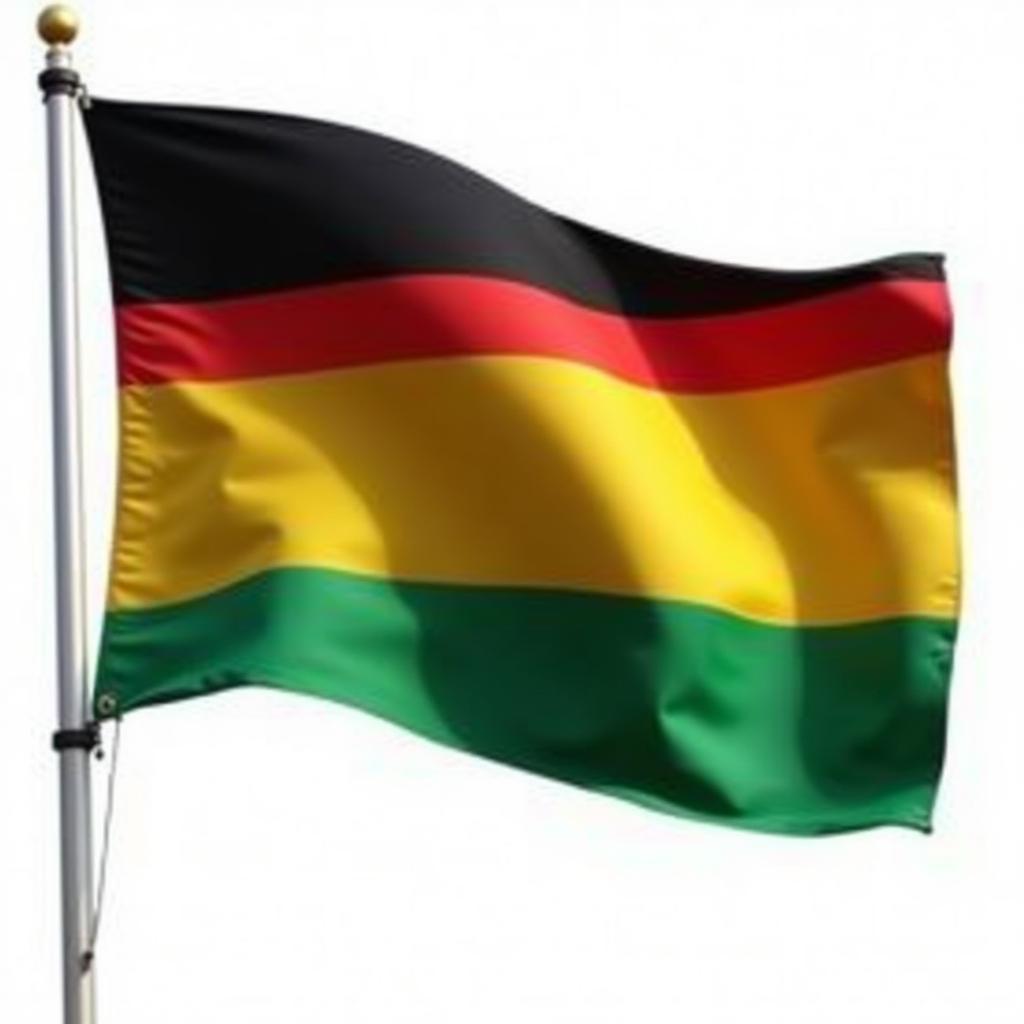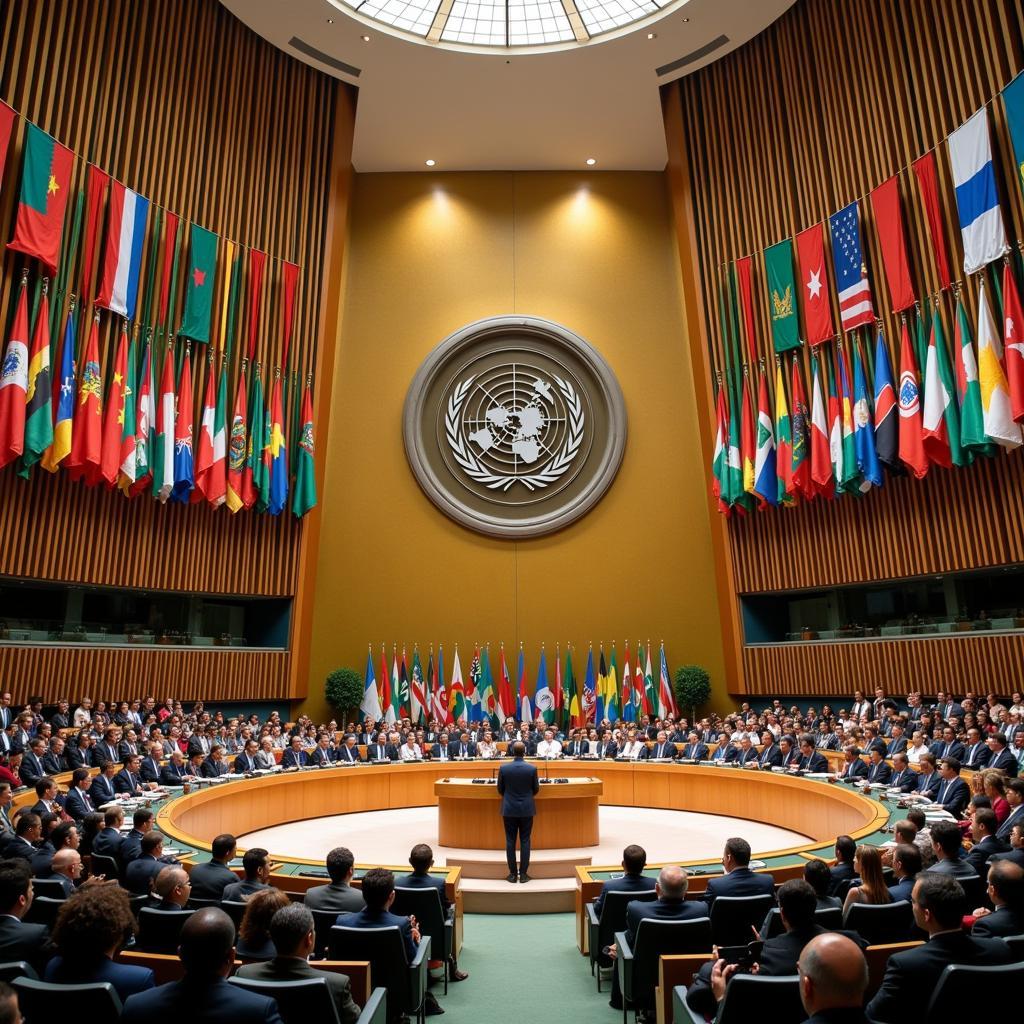Understanding Pan-Africanism: A Journey Through Unity and Solidarity
Pan-Africanism, a powerful socio-political movement, has shaped the course of African history. It represents the desire for unity, self-determination, and liberation among people of African descent worldwide. This ideology has evolved over centuries, encompassing a rich tapestry of intellectual thought, political activism, and cultural expression.  Pan-African flag waving in the wind
Pan-African flag waving in the wind
The Genesis of Pan-Africanism: From Abolition to Advocacy
The roots of Pan-Africanism can be traced back to the transatlantic slave trade and the subsequent struggle for abolition. Early proponents recognized the shared plight of Africans across the diaspora and advocated for their collective emancipation. This shared experience of oppression laid the foundation for a sense of shared identity and the desire for collective action. The late 19th and early 20th centuries witnessed the emergence of key figures who championed the cause of Pan-Africanism, organizing conferences and establishing organizations that would become instrumental in advancing the movement. The African Association 1897 was a significant milestone in this journey.
“The fight for freedom is not confined to geographical boundaries. It transcends continents and oceans, uniting people of African descent in a common purpose,” remarked Dr. Abimbola Adebayo, a renowned historian specializing in Pan-African studies.
Pan-Africanism in the Mid-20th Century: The Fight for Independence
The mid-20th century witnessed a surge in Pan-Africanist sentiment as African nations fought for independence from colonial rule. Leaders like Kwame Nkrumah of Ghana and Julius Nyerere of Tanzania played pivotal roles in advocating for a unified Africa, free from external interference. The Organisation of African Unity, established in 1963, represented a significant step towards this goal. This period also saw the rise of various intellectual and cultural movements that celebrated African identity and heritage.
What were the main aims of Pan-Africanism during this period?
The primary aims were to achieve political independence, promote economic cooperation, and foster cultural exchange among African nations. This involved challenging colonial powers, advocating for self-determination, and building solidarity among newly independent states.
The Evolution of Pan-Africanism: Challenges and Opportunities
While the achievements of Pan-Africanism are undeniable, the movement has also faced significant challenges. Internal conflicts, political instability, and economic disparities have hindered the realization of a fully unified Africa. However, the spirit of Pan-Africanism endures. Contemporary movements continue to address issues such as human rights, social justice, and economic development.
“Pan-Africanism is not a static ideology. It is a dynamic force that adapts to changing circumstances while remaining true to its core principles of unity and self-determination,” stated Professor Chinua Achebe, a prominent scholar of African literature and culture.
Pan-Africanism in the 21st Century: A Renewed Vision
In the 21st century, Pan-Africanism faces new challenges and opportunities in a globalized world. Issues like climate change, migration, and technological advancements require a collective response. The African Union established in 2002, represents a renewed commitment to Pan-African ideals. It seeks to promote peace, security, and development across the continent.
 African Union Summit with flags of member states
African Union Summit with flags of member states
Conclusion: The Enduring Legacy of Pan-Africanism
Pan-Africanism continues to be a relevant and powerful force in shaping the future of Africa and the diaspora. Its enduring legacy lies in its ability to inspire generations to strive for unity, justice, and self-determination. You can further explore the complexities of the movement through this valuable resource: achievements and failures of pan africanism pdf. Pan-Africanism reminds us that the struggle for liberation is a collective endeavor, transcending borders and uniting people in a shared vision of a better future.
For support, please contact us at Phone: +255768904061, Email: kaka.mag@gmail.com, or visit us at Mbarali DC Mawindi, Kangaga, Tanzania. We have a 24/7 customer service team.


